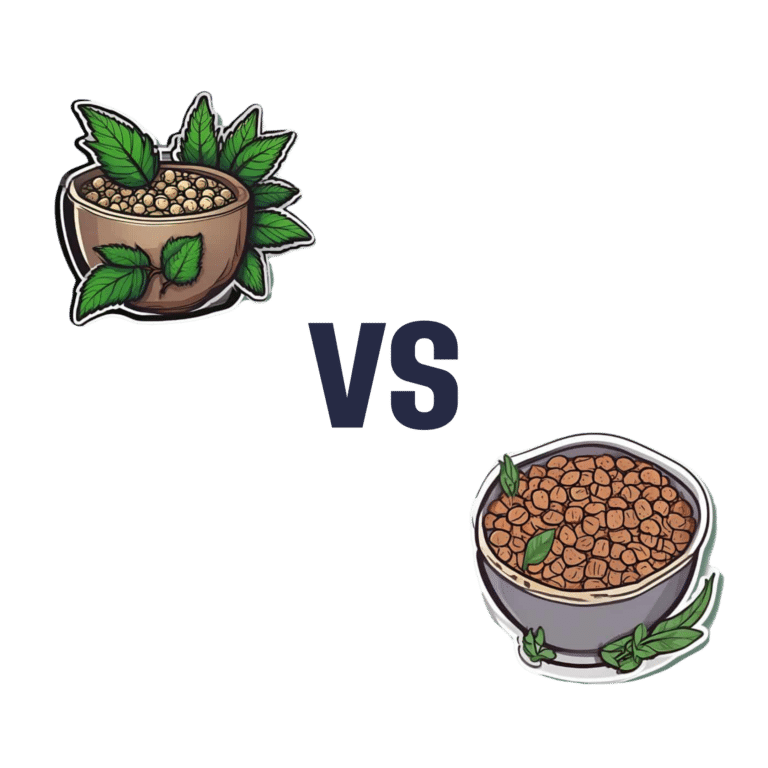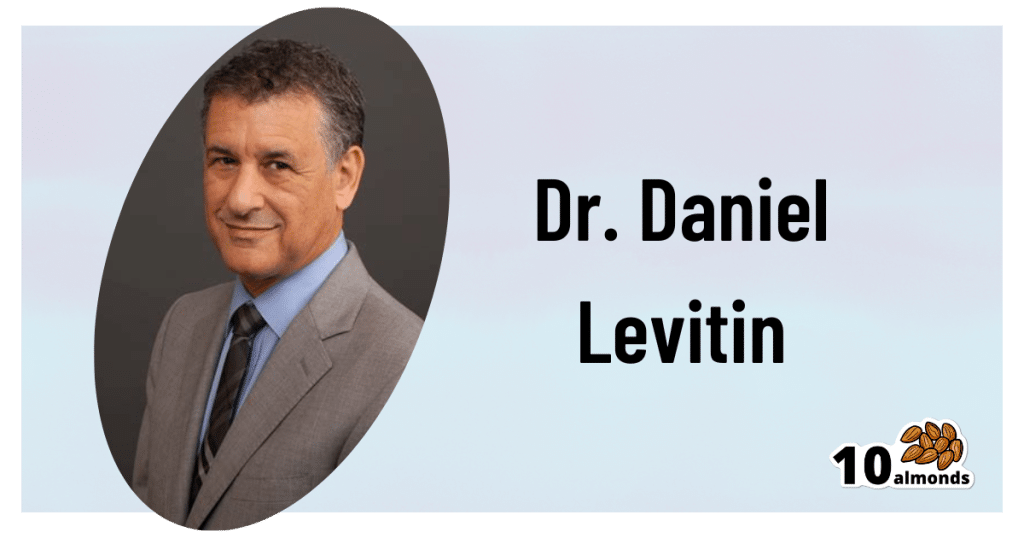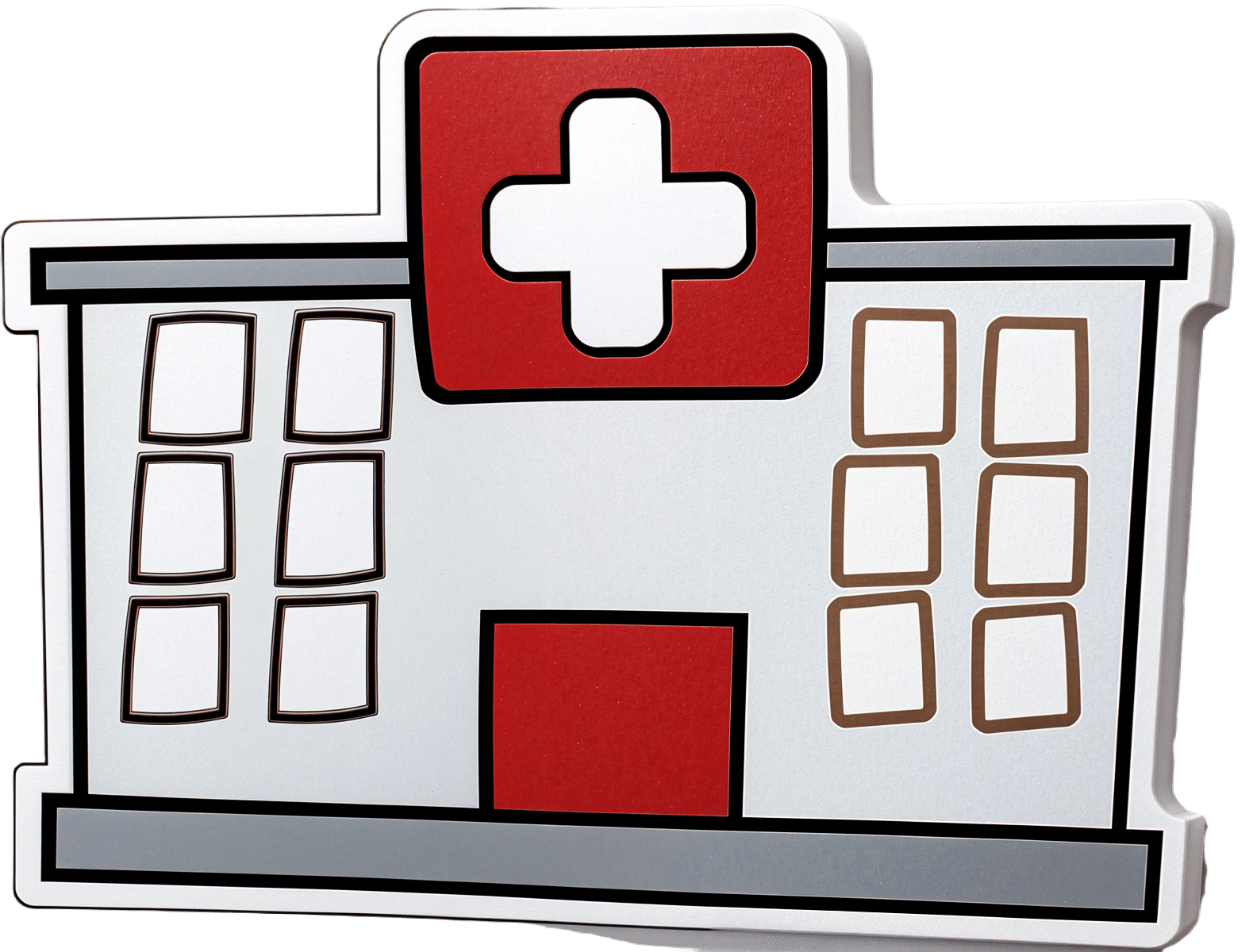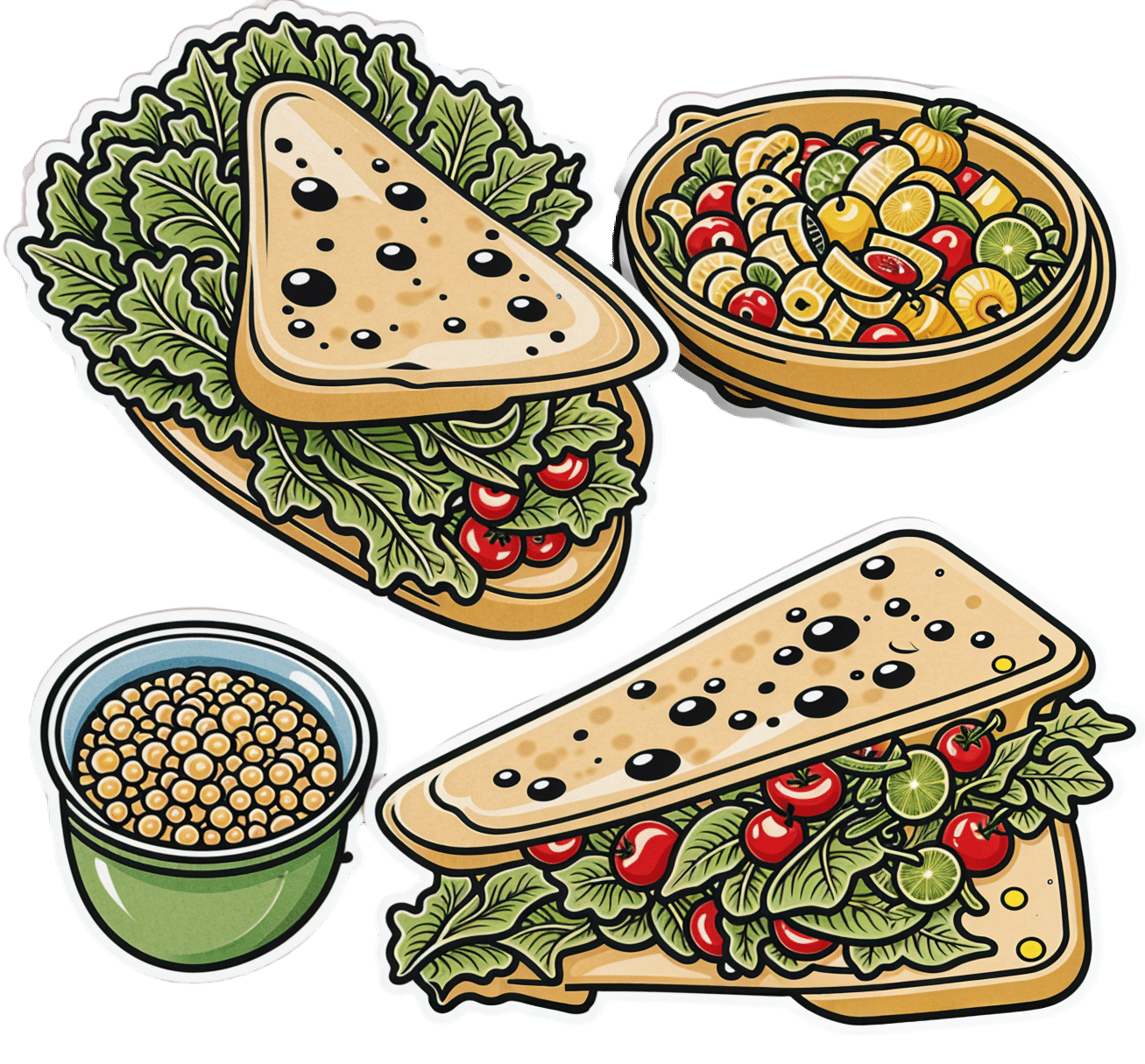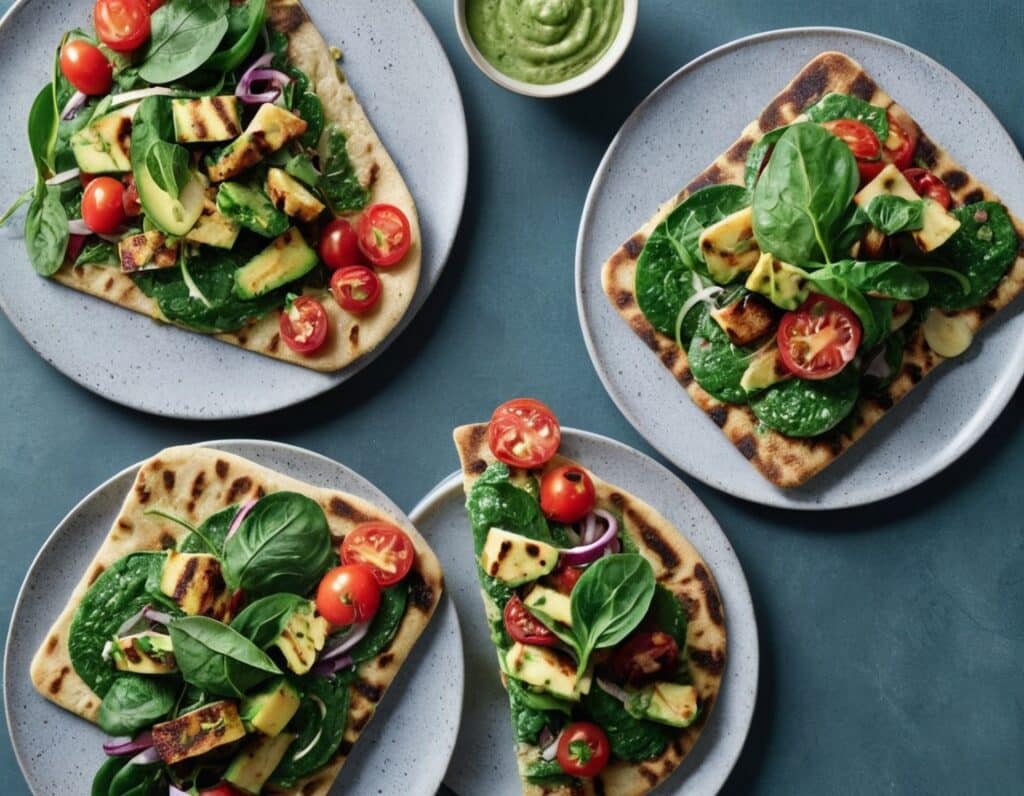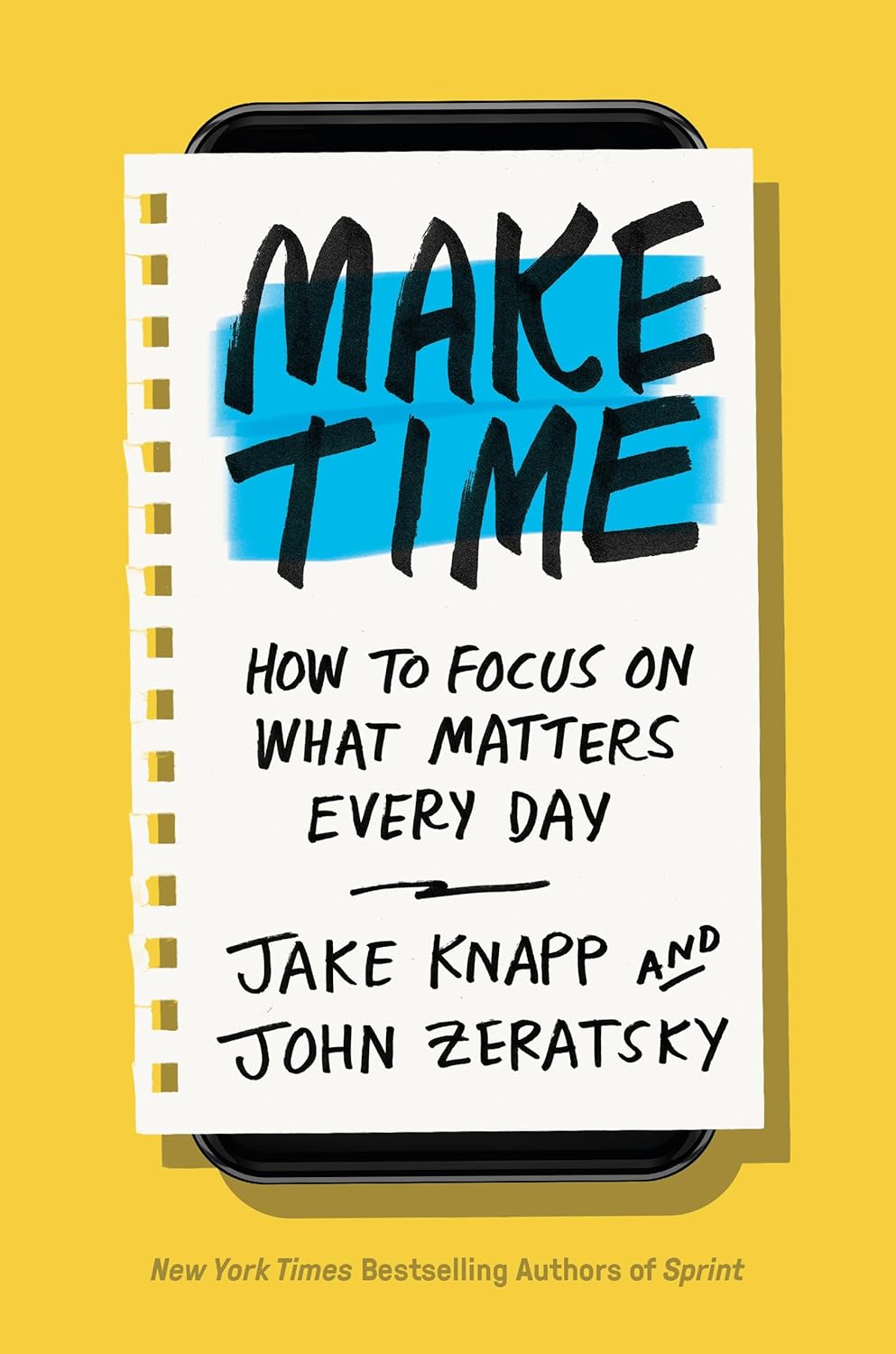
Hummus vs Guacamole – Which is Healthier?
10almonds is reader-supported. We may, at no cost to you, receive a portion of sales if you purchase a product through a link in this article.
Our Verdict
When comparing hummus to guacamole, we picked the guacamole.
Why?
First up, let’s assume that the standards are comparable, for example that both have been made with simple whole foods. The hummus is mostly chickpeas with tahini and a little olive oil and some seasoning; the guacamole is mostly avocado with a little lime juice and some seasoning.
In terms of macronutrients, hummus has slightly more protein and fiber, 2x the carbohydrates (but they are healthy carbs), and usually slightly less fat (but the fats are healthy in both cases).
In terms of micronutrients, the hummus is rich in iron and B vitamins, and the guacamole is rich in potassium, magnesium, vitamins C, E, and K.
So far, it’s pretty much tied. What else is there to consider?
We picked the guacamole because some of its nutrients (especially the potassium, magnesium, and vitamin K) are more common deficiencies in most people’s diets than iron and B vitamins. So, on average, it’s probably the one with the nutrients that you need more of at any given time.
So, it was very very close, and it came down to the above as the deciding factor.
However!
- If you like one and not the other? Eat that one; it’s good.
- If you like both but feel like eating one of them in particular? Eat that one; your body is probably needing those nutrients more right now.
- If you are catering for a group of people? Serve both!
- If you are catering for just yourself and would enjoy both? Serve both! There’s nobody to stop you!
Want to read more?
You might like: Avocado Oil vs Olive Oil – Which is Healthier?
Enjoy!
Don’t Forget…
Did you arrive here from our newsletter? Don’t forget to return to the email to continue learning!
Recommended
Learn to Age Gracefully
Join the 98k+ American women taking control of their health & aging with our 100% free (and fun!) daily emails:

The Five Key Traits Of Healthy Aging
10almonds is reader-supported. We may, at no cost to you, receive a portion of sales if you purchase a product through a link in this article.
The Five Keys Of Aging Healthily

Image courtesy of Peter Prato. This is Dr. Daniel Levitin. He’s a neuroscientist, and his research focuses on aging, the brain, health, productivity, and creativity. Also music, and he himself is an accomplished musician also, but we’re not going to be focusing on that today.
We’re going to be looking at the traits that, according to science, promote healthy longevity in old age. In other words, the things that increase our healthspan, from the perspective of a cognitive scientist.
What does he say we should do?
Dr. Levitin offers us what he calls the “COACH” traits:
- Curiosity
- Openness
- Associations
- Conscientiousness
- Healthy practices
By “associations”, he means relationships. However, that would have made the acronym “CORCH”, and decisions had to be made.
Curiosity
Leonardo da Vinci had a list of seven traits he considered most important.
We’ll not go into those today (he is not our featured expert of the day!), but we will say that he agreed with Dr. Levitin on what goes at the top of the list: curiosity.
- Without curiosity, we will tend not to learn things, and learning things is key to keeping good cognitive function in old age
- Without curiosity, we will tend not to form hypotheses about how/why things are the way they are, so we will not exercise imagination, creativity, problem-solving, and other key functions of our brain
- Without curiosity, we will tend not to seek out new experiences, and consequently, our stimuli will be limited—and thus, so will our brains
Openness
Being curious about taking up ballroom dancing will do little for you, if you are not also open to actually trying it. But, openness is not just a tag-on to curiosity; it deserves its spot in its own right too.
Sometimes, ideas and opportunities come to us unbidden, and we have to be able to be open to those too. This doesn’t mean being naïve, but it does mean having at least a position of open-minded skepticism.
Basically, Dr. Levitin is asking us to be the opposite of the pejorative stereotype of “an old person stuck in their ways”.
Associations
People are complex, and so they bring complexities to our lives. Hopefully, positively stimulating ones. Without them to challenge us (again, hopefully in a positive way), we can get very stuck in a narrow field of experience.
And of course, having at least a few good friends has numerous benefits to health. There’s been a lot of research on this; 5 appears to be optimal.
- More than that, and the depth tends to tail off, and/or stresses ensue from juggling too many relationships
- Fewer than that, and we might be only a calendar clash away from loneliness
Friends provide social stimulation and mutual support; they’re good for our mental health and even our physiological immunity (counterintuitively, by means of shared germs).
And, a strong secure romantic relationship is something that has been found time and again to extend healthy life.
Note: by popular statistics, this benefit is conferred upon men partnered with women, men partnered with men, women partnered with women, but not women partnered with men.
There may be a causative factor that’s beyond the scope of this article which is about cognitive science, not feminism, but there could also be a mathematical explanation for this apparent odd-one-out:
Since women tend to live longer than men (who are also often older than their female partners), women who live the longest are often not in a relationship—precisely because they are widows. So these long-lived widows will tend to skew the stats, through no fault of their husbands.
On the flipside of this, for a woman to predecease her (statistically older and shorter-lived) husband will often require that she die quite early (perhaps due to accident or illness unrelated to age), which will again skew the stats to “women married to men die younger”, without anything nefarious going on.
Conscientiousness
People who score highly in the character trait “conscientiousness” will tend to live longer. The impact is so great, that a child’s scores will tend to dictate who dies in their 60s or their 80s, for example.
What does conscientiousness mean? It’s a broad character trait that’s scored in psychometric tests, so it can be things that have a direct impact on health, such as brushing one’s teeth, or things that are merely correlated, such as checking one’s work for typos (this writer does her best!).
In short, if you are the sort of person who attends to the paperwork for your taxes on time, you are probably also the sort of person who remembers to get your flu vaccination and cancer screening.
Healthy practices
This means “the usual things”, such as:
- Healthy diet (Mediterranean Diet consistently scores up top)
- Good exercise (especially the tendency to keep moving in general)
- Good sleep (7–9 hours, no compromises)
- Not drinking (or at least only very moderate consumption, but the only safe amount is zero)
- Not smoking (just don’t; there is no wiggle room on this one)
Want to learn more?
You can check out his book, which we reviewed all so recently, and you can also enjoy this video, in which he talks about matters concerning healthy aging from a neuroscientist’s perspective, ranging from heart health and neurodegeneration, to the myth of failing memory, to music and lifespan and more:
Share This Post

The Insider’s Guide To Making Hospital As Comfortable As Possible
10almonds is reader-supported. We may, at no cost to you, receive a portion of sales if you purchase a product through a link in this article.
Nobody Likes Surgery, But Here’s How To Make It Much Less Bad

This is Dr. Chris Bonney. He’s an anesthesiologist. If you have a surgery, he wants you to go in feeling calm, and make a quick recovery afterwards, with minimal suffering in between.
Being a patient in a hospital is a bit like being a passenger in an airplane:
- Almost nobody enjoys the thing itself, but we very much want to get to the other side of the experience.
- We have limited freedoms and comforts, and small things can make a big difference between misery and tolerability.
- There are professionals present to look after us, but they are busy and have a lot of other people to tend to too.
So why is it that there are so many resources available full of “tips for travelers” and so few “tips for hospital patients”?
Especially given the relative risks of each, and likelihood, or even near-certainty of coming to at least some harm… One would think “tips for patients” would be more in demand!
Tips for surgery patients, from an insider expert
First, he advises us: empower yourself.
Empowering yourself in this context means:
- Relax—doctors really want you to feel better, quickly. They’re on your side.
- Research—knowledge is power, so research the procedure (and its risks!). Dr. Bonney, himself an anesthesiologist, particularly recommends you learn what specific anesthetic will be used (there are many, and they’re all a bit different!), and what effects (and/or after-effects) that may have.
- Reframe—you’re not just a patient; you’re a customer/client. Many people suffer from MDeity syndrome, and view doctors as authority figures, rather than what they are: service providers.
- Request—if something would make you feel better, ask for it. If it’s information, they will be not only obliged, but also enthusiastic, to give it. If it’s something else, they’ll oblige if they can, and the worst case scenario is something won’t be possible, but you won’t know if you don’t ask.
Next up, help them to help you
There are various ways you can be a useful member of your own care team:
- Go into surgery as healthy as you can. If there’s ever a time to get a little fitter, eat a little healthier, prioritize good quality sleep more, the time approaching your surgery is the time to do this.
- This will help to minimize complications and maximize recovery.
- Take with you any meds you’re taking, or at least have an up-to-date list of what you’re taking. Dr. Bonney has very many times had patients tell him such things as “Well, let me see. I have two little pink ones and a little white one…” and when asked what they’re for they tell him “I have no idea, you’d need to ask my doctor”.
- Help them to help you; have your meds with you, or at least a comprehensive list (including: medication name, dosage, frequency, any special instructions)
- Don’t stop taking your meds unless told to do so. Many people have heard that one should stop taking meds before a surgery, and sometimes that’s true, but often it isn’t. Keep taking them, unless told otherwise.
- If unsure, ask your surgical team in advance (not your own doctor, who will not be as familiar with what will or won’t interfere with a surgery).
Do any preparatory organization well in advance
Consider the following:
- What do you need to take with you? Medications, clothes, toiletries, phone charger, entertainment, headphones, paperwork, cash for the vending machine?
- Will the surgeons need to shave anywhere, and if so, might you prefer doing some other form of depilation (e.g. waxing etc) yourself in advance?
- Is your list of medications ready?
- Who will take you to the hospital and who will bring you back?
- Who will stay with you for the first 24 hours after you’re sent home?
- Is someone available to look after your kids/pets/plants etc?
Be aware of how you do (and don’t) need to fast before surgery
The American Society of Anesthesiologists gives the following fasting guidelines:
- Non-food liquids: fast for at least 2 hours before surgery
- Food liquids or light snacks: fast for at least 6 hours before surgery
- Fried foods, fatty foods, meat: fast for at least 8 hours before surgery
(see the above link for more details)
Dr. Bonney notes that many times he’s had patients who’ve had the worst thirst, or caffeine headache, because of abstaining unnecessarily for the day of the surgery.
Unless told otherwise by your surgical team, you can have black coffee/tea up until two hours before your surgery, and you can and should have water up until two hours before surgery.
Hydration is good for you and you will feel the difference!
Want to know more?
Dr. Bonney has his own website and blog, where he offers lots of advice, including for specific conditions and specific surgeries, with advice for before/during/after your hospital stay.
He also has a book with many more tips like those we shared today:
Calm For Surgery: Supertips For A Smooth Recovery
Take good care of yourself!
Share This Post

Green Paneer Flatbreads
10almonds is reader-supported. We may, at no cost to you, receive a portion of sales if you purchase a product through a link in this article.
These are versatile little snacks that can be eaten alone or served as part of a buffet; great for warm summer nights!
You will need
- 1 lb block of paneer (you can also use our plant-based high-protein paneer recipe)
- 7 oz unsweetened yogurt (your choice what kind; plant-based is fine; live cultured is best)
- 1 tomato, thinly sliced
- ½ red onion, thinly sliced
- 2 oz spinach leaves
- 1 tbsp lime juice
- 1 tsp red chili powder
- 4 wholewheat flatbreads
And then the marinade:
- 3 oz spinach
- ½ bulb garlic
- 1 tsp cumin seeds
- 1 tsp coriander seeds
- 1 tsp chili flakes
- ½ tsp MSG or 1 tsp low-sodium salt (MSG being the preferable and healthier option)
- 2 tbsp extra virgin olive oil
- Juice of ½ lime
Method
(we suggest you read everything at least once before doing anything)
1) Blend the marinade ingredients in a blender.
2) Cut the paneer into long cuboid chapes (similar to fish fingers) and put them in a bowl. Pour ⅔ of the marinade over them, and gently mix to coat evenly.
3) Heat a ridged griddle pan, and when hot, add the paneer and cook for 1–2 minutes each side without stirring, jiggling, or doing anything other than turning once per uncooked side.
4) Combine the onion, tomato, spinach leaves, lime choice, and chili powder to make the salad.
5) Add the remaining marinade to the yogurt to make a green dip.
6) Toast your flatbreads under the grill.
5) Assemble, putting the paneer and salad with a spoonful of the dip on the flatbread, and serve:

Enjoy!
Want to learn more?
For those interested in some of the science of what we have going on today:
- High-Protein Plant-Based Paneer
- Why You’re Probably Not Getting Enough Fiber (And How To Fix It)
- Our Top 5 Spices: How Much Is Enough For Benefits?
- Monosodium Glutamate: Sinless Flavor-Enhancer Or Terrible Health Risk?
Take care!
Share This Post
Related Posts

Make Time – by Jake Knapp and John Zeratzky
10almonds is reader-supported. We may, at no cost to you, receive a portion of sales if you purchase a product through a link in this article.
We live in an information-saturated world, and we have done for so long now that it’s easy to forget: we did not evolve for this!
It’s easy to say “unplug”, but the reality is:
We also have to actually function in this fast-paced info-dense world whether we want to or not, and we are expected to be able to handle it.
So… How?
Appropriately enough, authors Knapp and Zeratsky present the answer in a skimmer-friendly fashion, with summaries and bullet points and diagrams and emboldened text forease of speed-reading. Who uses such tricks?!
In short, less living life in “default mode scramble” and more about making an impact in the ways you actually want to, for you.
Don’t Forget…
Did you arrive here from our newsletter? Don’t forget to return to the email to continue learning!
Learn to Age Gracefully
Join the 98k+ American women taking control of their health & aging with our 100% free (and fun!) daily emails:

Wanna read more?
10almonds is reader-supported. We may, at no cost to you, receive a portion of sales if you purchase a product through a link in this article.
You’ve Got Questions? We’ve Got Answers!
Q: Tips for reading more and managing time for it?
A: We talked about this a little bit in yesterday’s edition, so you may have seen that, but aside from that:
- If you don’t already have one, consider getting a Kindle or similar e-reader. They’re very convenient, and also very light and ergonomic—no more wrist strain as can occur with physical books. No more eye-strain, either!
- Consider making reading a specific part of your daily routine. A chapter before bed can be a nice wind-down, for instance! What’s important is it’s a part of your day that’ll always, or at least almost always, allow you to do a little reading.
- If you drive, walk, run, or similar each day, a lot of people find that’s a great time to listen to an audiobook. Please be safe, though!
- If your lifestyle permits such, a “reading retreat” can be a wonderful vacation! Even if you only “retreat” to your bedroom, the point is that it’s a weekend (or more!) that you block off from all other commitments, and curl up with the book(s) of your choice.
Don’t Forget…
Did you arrive here from our newsletter? Don’t forget to return to the email to continue learning!
Learn to Age Gracefully
Join the 98k+ American women taking control of their health & aging with our 100% free (and fun!) daily emails:

Is It Dementia?
10almonds is reader-supported. We may, at no cost to you, receive a portion of sales if you purchase a product through a link in this article.
Spot The Signs (Because None Of Us Are Immune)
Dementia affects increasingly many people, and unlike a lot of diseases, it disproportionately affects people in wealthy industrialized nations.
There are two main reasons for this:
- Longevity (in poorer countries, more people die of other things sooner; can’t get age-related cognitive decline if you don’t age)
- Lifestyle (in the age of convenience, it has never been easier to live an unhealthy lifestyle)
The former is obviously no bad thing for those of us lucky enough to be in wealthier countries (though even in such places, good healthcare access is of course sadly not a given for all).
The latter, however, is less systemic and more epidemic. But it does cut both ways:
- An unhealthy lifestyle is much easier here, yes
- A healthier lifestyle is much easier here, too!
This then comes down to two factors in turn:
- Information: knowing about dementia, what things lead to it, what to look out for, what to do
- Motivation: priorities, and how much attention we choose to give this matter
So, let’s get some information, and then give it our attention!
More than just memory
It’s easy to focus on memory loss, but the four key disabilities directly caused by dementia (each person may not get all four), can be remembered by the mnemonic: “AAAA!”
No, somebody didn’t just murder your writer. It’s:
- Amnesia: memory loss, in one or more of its many forms
- e.g. short term memory loss, and/or inability to make new memories
- Aphasia: loss of ability to express oneself, and/or understand what is expressed
- e.g. “More people have been to Berlin than I have”
- Or even less communication-friendly, Broca’s (Expressive) Aphasia and Wernicke’s (Receptive) Aphasia
- Apraxia: loss of ability to do things, through no obvious physical disability
- e.g. staring at the bathroom mirror wondering how to brush one’s teeth
- Agnosia: loss of ability to recognize things
- e.g. prosopagnosia, also called face-blindness.
If any of those seem worryingly familiar, be aware that while yes, it could be a red flag, what’s most important is patterns of these things.
Another difference between having a momentary brainlapse and having dementia might be, for example, the difference between forgetting your keys, and forgetting what keys do or how to use one.
That said, some are neurological deficits that may show up quite unrelated to dementia, including most of those given as examples above. So if you have just one, then that’s probably worthy of note, but probably not dementia.
Writer’s anecdote: I have had prosopagnosia all my life. To give an example of what that is like and how it’s rather more than just “bad with faces”…
Recently I saw my neighbor, and I could tell something was wrong with her face, but I couldn’t put my finger on what it was. Then some moments later, I realized I had mistaken her hat for her face. It was a large beanie with a panda design on it, and that was facelike enough for me to find myself looking at the wrong face.
Subjective memory matters as much as objective
Objective memory tests are great indicators of potential cognitive decline (or improvement!), but even a subjective idea of having memory problems, that one’s memory is “not as good as it used to be”, can be an important indicator too:
Subjective memory may be marker for cognitive decline
And more recently:
If your memory feels like it’s not what it once was, it could point to a future dementia risk
If you’d like an objective test of memory and other cognitive impairments, here’s the industry’s gold standard test (it’s free):
SAGE: A Test to Detect Signs of Alzheimer’s and Dementia
(The Self-Administered Gerocognitive Exam (SAGE) is designed to detect early signs of cognitive, memory or thinking impairments)
There are things that can look like dementia that aren’t
A person with dementia may be unable to recognize their partner, but hey, this writer knows that feeling very well too. So what sets things apart?
More than we have room for today, but here’s a good overview:
What are the early signs of dementia, and how does it differ from normal aging?
Want to read more?
You might like our previous article more specifically about reducing Alzheimer’s risk:
Reducing Alzheimer’s Risk Early!
Take care!
Don’t Forget…
Did you arrive here from our newsletter? Don’t forget to return to the email to continue learning!
Learn to Age Gracefully
Join the 98k+ American women taking control of their health & aging with our 100% free (and fun!) daily emails:

